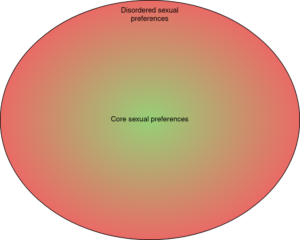For some reason i had not stumbled upon, or just didnt read, this article before
http://en.wikipedia.org/wiki/Criticism_of_evolutionary_psychology
It sums up the common criticisms. As someone who is very well read in the field, the most interesting thing about the article was the references and other articles it links to.
–
http://en.wikipedia.org/wiki/Biopsychiatry_controversy
I think i have read this one before when i was researching antipsychiatry.
Reductionism
Niall McLaren emphasizes in his books Humanizing Madness and Humanizing Psychiatry that the major problem with psychiatry is that it lacks a unified model of the mind and has become entrapped in a biological reductionist paradigm. The reasons for this biological shift are intuitive as reductionism has been very effective in other fields of science and medicine. However, despite reductionism’s efficacy in explaining the smallest parts of the brain this does not explain the mind, which is where he contends the majority of psychopathology stems from. An example would be that every aspect of a computer can be understood scientifically down to the very last atom, however this does not reveal the program that drives this hardware. He also argues that the widespread acceptance of the reductionist paradigm leads to a lack of openness to self-criticism and therefore halts the very engine of scientific progress.[19] He has proposed his own natural dualist model of the mind, the biocognitive model, which is rooted in the theories of David Chalmers and Alan Turing and does not fall into the dualist’s trap of spiritualism.[20]”
Yes it does! Altho that wud be a slow method of figuring out stuff it can be done. If one has a complete model of the hardware, one can then simulate it and see what software is on it. This can and will be done soonish with the human mind. The reason for this is that the computatitional power required to fully simulate a human mind is soon reached.
–
http://en.wikipedia.org/wiki/Evolutionary_theory_and_the_political_left
Recounts the usual history of the left with evolutionary psychology and evolution, including the unfortunate history of soviet ‘biology’ that is Lysenkoism.
–
http://en.wikipedia.org/wiki/Modularity_of_mind
Also had some good links:
http://psych.mcmaster.ca/dalywilson/reply%20to%20david%20buller.pdf
Delton, Robertson, Kenrick (2006) The Mating Game Isn’t Over: A Reply to Buller’s Critique of the Evolutionary Psychology of Mating. [5]
Miele (2006) Evolutionary Psychology is Here to Stay: A Response to Buller. [6]
Bryant, Gregory A. (Fall 2006). “On Hasty Generalization About Evolutionary Psychology”. AMERICAN JOURNAL OF PSYCHOLOGY 119 (3): 481–516. Retrieved 15 July 2012. (i fixed this reference! :))
http://www.skeptic.com/reading_room/evolutionary-psychology-is-here-to-stay/
Evolutionary Psychology: Controversies, Questions, Prospects, and Limitations
–
http://en.wikipedia.org/wiki/A_Darwinian_Left
“A Darwinian Left: Politics, Evolution and Cooperation is a 2000 book by Peter Singer (Yale University Press, ISBN 0-300-08323-8), which argues that the view of human nature provided by evolution (e.g., evolutionary psychology) is compatible with and should be incorporated into the ideological framework of the Left.
Singer’s argument is that the Left will be better able to achieve its social and economic goals if it incorporates the more accurate view of human nature provided by evolution: “To be blind to the facts about human nature is to risk disaster”. For example, Singer argues that the Left’s view of human nature as highly malleable, which he identifies with Marxism and the standard social science model, is incorrect.
Singer argues that evolutionary psychology suggests that humans naturally tend to be self-interested. He further argues that the evidence that selfish tendencies are natural must not be taken as evidence that selfishness is right. He concludes that game theory (the mathematical study of strategy) and experiments in psychology offer hope that self-interested people will make short-term sacrifices for the good of others, if society provides the right conditions. Essentially Singer claims that although humans possess selfish, competitive tendencies naturally, they have a substantial capacity for cooperation that has also been selected for during human evolution.[1]”
Im pleasently surprised by Peter Singer!
–

